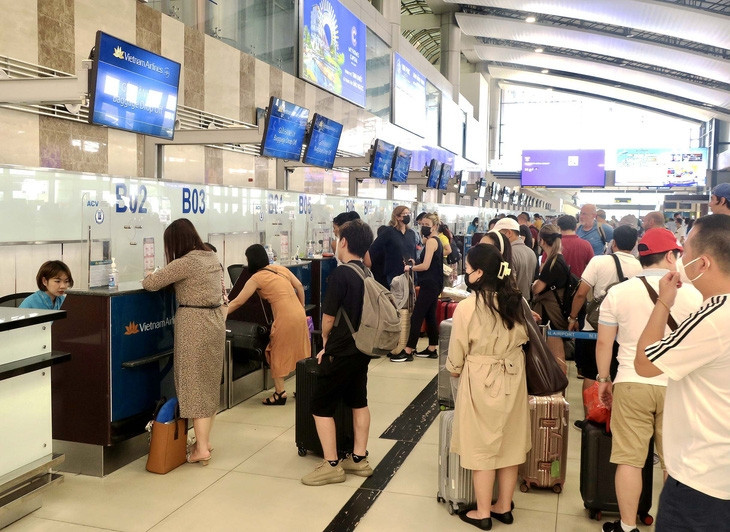Besides the gloomy and not very optimistic economic growth indicators in the first quarter of 2023, there is a "storm" emerging with the proposal to apply a floor price for airline tickets being raised again.

Proponents of the regulation of floor prices for airline tickets argue that this is to avoid the possibility of "professional" airlines being outcompeted/defeated by "low-cost" airlines (illustrative photo)
There is even a proposal to add a floor price to the draft revised Law on Prices to be submitted to the National Assembly for approval in the session next May.
That is, the floor price is general and long-term, not just temporary and flexible to "rescue" Vietnam Airlines at risk of bankruptcy under the impact of the Covid-19 epidemic as proposed in 2021.
The argument for regulating floor prices for airline tickets is that this is to avoid the possibility of "professional" airlines being outcompeted/beaten by "low-cost" airlines.
So do they deny the principle of fair and equal competition among economic sectors in the market economy as clearly stipulated in Clause 1, Article 51 of the 2013 Constitution?
Up to now, the consistent and clear viewpoint of the Party and State on the policy of developing economic sectors is to ensure the right to freedom of business, cooperation and fair competition according to the provisions of law, without discrimination or treatment between different economic sectors and economic entities.
In fact, since the proposal for a floor price for airline tickets appeared, low-cost airlines, especially young private airlines, have strongly opposed it, considering it a form of restricting competition.
More dangerously, many opposing opinions have pointed out that the regulation of floor prices will put at risk creative business plans that help maximize customer numbers and exploit niche markets and potential markets of new airlines.
As we all know, only in an environment where there is (fierce) market competition, business entities are forced to constantly seek new business solutions, reduce operating costs, innovate and be more creative in their operations, in order to stay ahead of competitors and find new niche markets to maximize profits.
But it is also thanks to competition that monopolies or super-profitable niche markets cannot survive for too long, at which time the more creative and efficient business entity will win in the marketplace.
If the "big guys" of the past do not innovate themselves, they will eventually lose their market value and be eliminated. This is an immutable law of the market economy that economists call "creative elimination", to make way for new, stronger, more innovative, more creative, and more efficient business entities.
Therefore, it is better for Vietnam Airlines to learn to be self-reliant in the market, to really look back at itself, to clarify its competitive capacity, weaknesses in management activities and business strategies, in order to find ways to overcome "survival" and develop worthy of the brand of Vietnam's national airline.
The story of Vietnam Airlines is also the common story of state-owned enterprises that still hold controlling shares and, further, the story of perfecting the socialist-oriented market economic institution.
According to Tuoi Tre